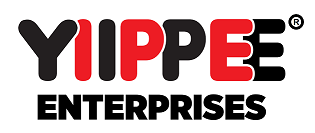by Dr. Danish Lambe
Trusts, societies, and Section 8 companies are three distinct legal structures for setting up NGOs in India. They differ in registration processes, annual costs, and operational procedures. In Maharashtra, it is common to register a trust and society together, whereas a Section 8 company is preferred for its structured governance and transparency. Here’s a detailed comparison of their registration, annual expenses, and other aspects.
Registration Costs
Trust and Society:
In Maharashtra, registering a trust and society together is relatively cost-effective. Expenses include drafting the trust deed and memorandum of association (MOA), often requiring a consultant or lawyer.
- Stamp Duty: INR 500 to INR 1,000 (depending on property value).
- Notarization: INR 1,000 to INR 2,000.
- Consultant Fees: INR 15,000 to INR 40,000.
- Miscellaneous Costs: INR 2,000 to INR 5,000.
Total Cost: INR 20,000 to INR 50,000.
Section 8 Company:
Section 8 company registration is more complex and expensive but offers better transparency and facilities. The following costs are involved:
- Digital Signature Certificate (DSC): INR 1,500 to INR 6,000 per director.
- Director Identification Number (DIN): Included in application fees.
- Consultant Fees: INR 25,000 to INR 50,000.
- Miscellaneous Costs: INR 5,000 to INR 10,000.
Total Cost: INR 40,000 to INR 70,000.
Annual Costs
Trust and Society:
The annual expenses for trusts and societies are lower, but compliance processes are time-consuming.
- Audit and Income Tax Return Filing: INR 10,000 to INR 25,000.
- Compliance Report to Charity Commissioner: INR 5,000 to INR 10,000.
- Notarization and Miscellaneous Costs: INR 2,000 to INR 5,000.
Total Annual Costs: INR 20,000 to INR 40,000.
Section 8 Company:
Annual costs for a Section 8 company are higher, but the process is transparent and convenient.
- Audit and Income Tax Return Filing: INR 15,000 to INR 30,000.
- Annual Compliance (Forms MGT-7 and AOC-4): INR 10,000 to INR 15,000.
- Board Meetings and Resolutions: INR 5,000 to INR 10,000.
Total Annual Costs: INR 30,000 to INR 55,000.
Changing Committee Members: Process and Costs
Trust and Society:
Changing committee members in trusts and societies requires approval from the Charity Commissioner. Any changes necessitate amendments to the trust deed or society bylaws. This process is time-consuming, legally complex, and incurs additional costs.
Section 8 Company:
In a Section 8 company, changing committee members or the board of directors is straightforward. A resolution passed in a board meeting, followed by intimation to the Registrar of Companies (ROC), is sufficient. There are no significant legal complexities or costs.
Banking Facilities
Trust and Society:
For trusts and societies, appointing a new person to manage the bank account requires Charity Commissioner approval. If rule changes are needed, the entire process must be restarted, which is cumbersome and time-intensive.
Section 8 Company:
In a Section 8 company, appointing or changing the person responsible for the bank account is easy. A resolution passed in a board meeting and communicated to the bank is sufficient, saving significant time and effort.
Transparency and Convenience
Trust and Society:
While trusts and societies offer operational flexibility, they lack the transparency required to attract large donors or international funding.
Section 8 Company:
Section 8 companies are known for their corporate governance and transparency, making them more appealing to large donors and international funders. Their structured framework also ensures smooth and efficient operations.
Conclusion: Why Choose a Section 8 Company?
While the registration and annual costs for a Section 8 company are higher than those for trusts and societies, the benefits in terms of transparency, legal convenience, and donor confidence justify the additional expenses.
- Section 8 companies allow for seamless operations with fewer members, simplifying management.
- Legal complications and repeated approvals are minimized.
- Transparency builds trust with donors and attracts larger funding opportunities.
“If you aim to run your NGO with transparency, ease, and long-term success, a Section 8 company is the best choice.
Advisory Note
When selecting a consultant for your NGO registration, ensure that they have deep knowledge and experience regarding your current and future requirements. Choose a consultant who will support you in the long run and provide essential services like registration, compliance, and other necessary assistance.
Be cautious of consultants who lure you with low costs but later demand additional charges after taking the initial payment. Such practices not only waste your time and money but also create unnecessary complications for your NGO.
Working with an experienced and reliable consultant is a wise decision that will offer you long-term peace of mind, legal security, and financial savings.
